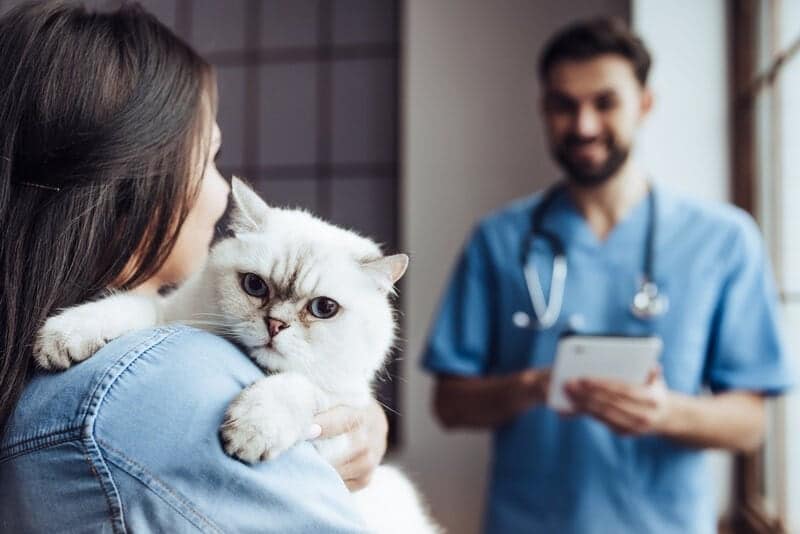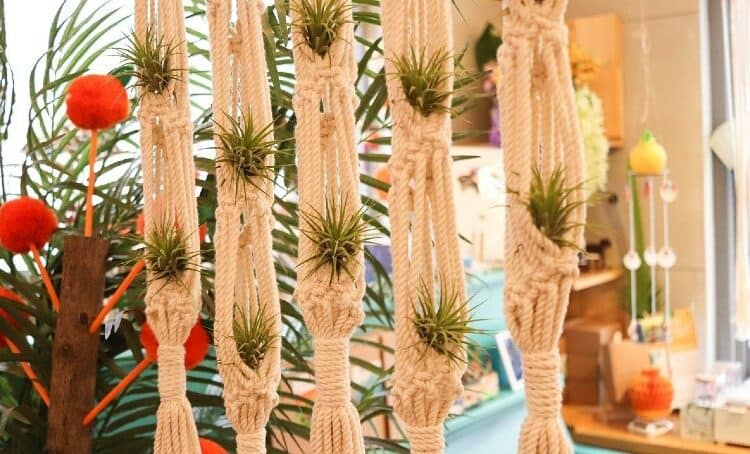If you love plants but own a cat, you might wonder what plants are safe to have inside your home. What about air plants? Are air plants toxic to cats? Good news! The answer is no, air plants are not toxic to cats.
In fact, they’re often recommended as pet-safe plants because they don’t produce any harmful toxins. But that doesn’t mean you should let your cat eat one if she gets the chance! If your cat does nibble an air plant, she may experience some stomach upset, but it’s not likely to be serious. Call your veterinarian for advice if you’re concerned about your cat’s health.
Keep reading if you want to learn more about air plants and your feline!
Air Plants in The Home
Air plants are a type of Tillandsia, an evergreen perennial flowering plant that grows without soil. They get their nutrients and water from the air and rain. There are over 650 species of Tillandsia, and they can be found in warm climates all over the world, including the southern United States, Mexico, South America, and the Caribbean.
Tillandsias are epiphytes, meaning they grow on other plants or objects. They often grow on tree branches, rocks, or fences. Some Tillandsias can even grow on power lines!
Air plants are very popular house plants because they are easy to care for. They don’t need soil, they don’t need much water, and they don’t need a lot of light. You can even grow them in a terrarium.
What Should I Do If My Cat Eats an Air Plant?
If your cat eats an air plant, there is no need to worry. Tillandsias are not poisonous to cats. However, you should remove the air plant from your cat’s reach so that they don’t eat it again.
You may also want to give your cat a small amount of food or water to make sure that he or she is not dehydrated. If your cat is vomiting, has diarrhea, or seems to be in pain, contact your veterinarian immediately.

Toxic Plants for Cats
While air plants are not toxic to cats, many other common houseplants are. Some of the most common toxic plants for cats include:
- Lilies
- Tulips
- Azaleas
- Begonia
If you suspect that your cat has eaten a toxic plant, contact your veterinarian immediately. Symptoms of plant poisoning in cats can include vomiting, diarrhea, lethargy, and seizures.
Plants That Are Safe for Cats
Fortunately, many plants are safe for cats. Some of the best plants to keep in your home if you have a cat include:
- Spider plants
- Cactus
- Ferns
- Orchids
- Catnip
If you are unsure whether a plant is safe for your cat, contact your veterinarian or the ASPCA’s Animal Poison Control Center.
Protecting Your Plants from Your Cat
The best way to protect your plants from your cat is to keep them out of reach. If you have hanging plants, put them on a high shelf or in a room that your cat doesn’t have access to.
You can also try spraying your plants with a mixture of water and lemon juice. Cats don’t like the smell of citrus, so this may deter them from chewing on your plants.
You can also buy commercial cat repellents at your local pet store. These products usually contain bitter flavors that cats don’t like.
If you have an outdoor garden, you can try using chicken wire or plastic netting to keep your cat out. Just make sure that the netting is tight enough that your cat can’t get through it.
Final Thoughts
So, great news: you don’t need to worry about your beloved air plants and your furry, feline friend coexisting. Your only worry should be keeping your naughty cat out of your favorite houseplants!
Featured Image Credit: Pixabay














